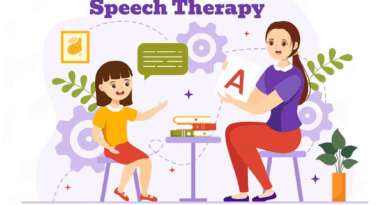What Is Hoarding Disorder? Letting Go Can Be Hard
Hoarding disorder is a mental health condition where individuals struggle to let go of possessions, regardless of their value. Significant distress and crowded living areas are frequent results of this activity. While everyone might hold onto items for sentimental reasons, hoarding disorder takes this to an extreme, where the need to keep things becomes overwhelming and disruptive to daily life.
Let’s delve into what hoarding disorder is, its impact, and how professional help, such as counselling and online support, can make a difference.
Understanding Hoarding Disorder
Hoarding disorder is characterized by:
- Difficulty discarding items: Individuals feel a strong emotional attachment to their possessions, fearing regret or loss if they let them go.
- Excessive accumulation of items: This leads to clutter that can interfere with the functionality of living spaces.
- Distress or impairment: Hoarding impacts relationships, increases work stress, and overall well-being.
Common items hoarded include newspapers, clothes, containers, and even trash. The clutter can lead to safety issues, like fire hazards, and cause strain in relationships.
The Emotional Side of Hoarding
For someone with hoarding disorder, their possessions often hold emotional significance. These items may represent memories, safety, or a sense of identity. Letting go can feel like losing a part of themselves, which makes decluttering incredibly challenging.
Hoarding often leads to a recurring cycle of guilt and heightened anxiety. While individuals may feel ashamed of their living conditions, the fear of discarding items prevents them from taking action. This emotional rollercoaster can lead to isolation, depression, and even physical health risks due to unsanitary conditions.
ThePsychowellness: Experts in Treating Hoarding Disorder
If you or a loved one is struggling with hoarding disorder, seeking professional help is a vital step. At ThePsychowellness, a team of skilled top psychologists specializes in helping individuals overcome hoarding tendencies with compassion and proven techniques.
- Dr. R.K. Suri: A distinguished clinical psychologist with extensive experience, Dr. Suri uses cognitive-behavioral therapy (CBT) to help individuals challenge their thoughts about possessions and develop healthier behaviors.
- Mr. Utkarsh Yadav: Known for his patient-centered approach, Mr. Yadav focuses on gradual decluttering and helping clients regain control of their living spaces.
- Ms. Sakshi Dhankhar: She works on identifying the emotional triggers behind hoarding and building strategies for long-term change.
- Ms. Mansi: With expertise in mindfulness techniques, Ms. Mansi helps clients manage the anxiety associated with letting go.
- Ms. Gurleen Kaur: Ms. Kaur provides supportive counselling to address the emotional challenges of hoarding and improve overall well-being.
- Ms. Tanu Sangwan: Specializing in habit reversal strategies, she guides individuals in creating clutter-free environments.
- Ms. Srishti: She incorporates psychoeducation to help clients understand their condition and make informed decisions about treatment.
- Ms. Sangeeta Pal: Ms. Pal uses evidence-based methods to reduce hoarding behaviors and improve daily functioning.
- Ms. Dristhi: Her empathetic approach ensures clients feel understood as they navigate the challenges of hoarding.
- Ms. Riya Rathi: Ms. Rathi combines therapy with practical organizational techniques to help clients reclaim their spaces.
- Mrs. Kala Sengupta is an experienced mental health professional specializing in Hoarding Disorder. She helps individuals understand and manage their condition with a compassionate, practical approach.
How Counselling Can Help
Therapists at ThePsychowellness use several approaches to address hoarding disorder:
- Cognitive-Behavioral Therapy (CBT): CBT helps individuals identify and change harmful beliefs about their possessions.
- Exposure Therapy: Gradual exposure to decluttering reduces the emotional discomfort of letting go.
- Mindfulness Techniques: These strategies help manage anxiety and emotional attachment.
- Supportive Counselling: Psychologists provide a safe space for clients to share their feelings and work through their challenges.
TalktoAngel: Online Counselling for Hoarding Disorder
For those who prefer the flexibility of online counseling, TalktoAngel offers a convenient platform to connect with mental health professionals. Online counselling provides:
- Accessibility: Help is just a click away, no matter where you live.
- Privacy: The setting in which sessions are held is secure and private.
- Convenience: Schedule sessions that fit your lifestyle and commitments.
Through online counselling, individuals struggling with hoarding can receive guidance, learn practical skills, and track their progress all from the comfort of their homes.
Assessment and Diagnosis
Understanding hoarding disorder begins with a thorough psychological assessment. The Best Psychologists at ThePsychowellness and TalktoAngel use standardized tools and interviews to evaluate the severity of hoarding behaviors. This approach aids in creating a personalized treatment plan that aligns with the individual’s specific needs.
Breaking the Stigma
Hoarding disorder is often misunderstood, leading to stigma and judgment. However, it’s important to recognize that hoarding is a mental health condition not a choice. By seeking help, individuals can learn to manage their symptoms and live healthier, more organized lives.
The Path to Recovery
Recovery from hoarding disorder is a gradual process, but with the right support, it’s entirely achievable. Counseling, whether in person or online, provides the tools and encouragement needed to make meaningful changes. Psychologists at ThePsychowellness and platforms like TalktoAngel are dedicated to guiding individuals every step of the way.
If you or someone you know is struggling with hoarding disorder, take the first step toward recovery by reaching out for help. Letting go may be hard, but with the right guidance, it’s possible to create a clutter-free, peaceful life.
References
- American Psychiatric Association. (2021). Hoarding disorder: Symptoms and treatment. Retrieved from www.apa.org
- TalktoAngel. (2024). Online therapy for hoarding disorder. Retrieved from www.talktoangel.com
- TheThePsychowellness. (2024). Expert psychologists for hoarding disorder. Retrieved from www.psychowellnesscenter.com




